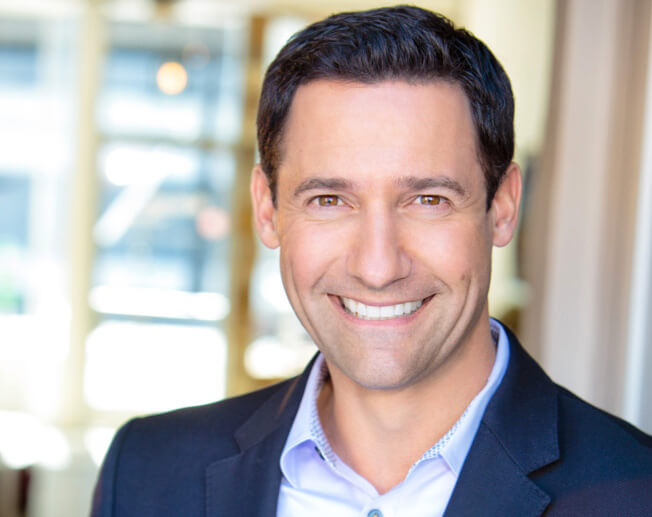About Brian Souza

I’m Brian Souza
Sales Leadership Coach and
Bestselling Author
I’m the founder and CEO of ProductivityDrivers, a sought-after keynote speaker, New York Times bestselling author, and thought leader. Throughout my 20-plus years in sales, I’ve had the privilege of training more than 10,000 sales leaders and managers at major companies around the world. But I have a skeleton in my closet. I started out as an ineffective manager.
My team got results, yes, but they didn’t exactly think highly of my management style. When I had a lightbulb moment and realized I needed to change, I discovered that there wasn’t a single leadership coach or self-help guru who could help me. Instead, I forged my own path and today, I’m pleased to pass along what I’ve learned to managers and sales leaders at some of the world’s leading high-tech companies.
My Journey from Flawed Manager to
High-Performance Coach
If you read my book or hear me give a seminar, you might think that sales leadership is in my blood. After all, I’ve worked with sales leaders at major corporations like Google, Boeing, and AstraZeneca. But in fact, I came from humble beginnings. Growing up in Small Town, USA, I put myself through college by waiting tables. I earned a degree in international business at San Diego State.
I’ve always been drawn to the technology sector, and so after graduation I found myself in Silicon Valley. I landed a job at Netscape as a Sales Development Representative. The dotcom revolution was in full swing and everyone shared the same infectious enthusiasm for the many ways in which technology was expected to transform humanity. I was no less enthusiastic—right up until Netscape issued massive layoffs thanks to Microsoft’s decision to give away Internet Explorer free of charge.
Despite the Netscape debacle, I still had a passion for technology, and so I pursued other opportunities in the tech sector. I parlayed my working class background into a strong work ethic that made me fit in perfectly with various tech start-ups. When I was 25, Akamai Technologies hired me as the first sales manager responsible for the West Coast (about 1/3 of the company’s revenue). It was an exciting time. My wife and I were newlyweds who had recently purchased our home. Then, I won the Worldwide Sales Manager of the Year award and was promoted again, making me the youngest member of the Executive Management Committee.
Before I transitioned to my new role, I decided to throw a party for my team at the new house. Everyone was having a great time, but then I heard something that stopped me dead in my tracks and completely changed the course of my life.
“Brian, you’re actually a really cool guy… outside the office.”
That fateful line came from one of my team members. I responded the only way I could—with self-deprecating humor that didn’t do me any favors. Fueled by liquid courage, a few other team members began chiming in with their own “funny” anecdotes regarding my management style. Up until then, I had thought I was a good manager. My team got results, and I’d thought of myself as a good leader. But apparently my team didn’t think so, which meant I’d been lying to myself all along. I went on a downward spiral, lost in imposter syndrome right in the midst of transitioning to a major new role at the company.
Just a few months after getting that big promotion, I hit rock bottom. I quit, sold the house, and went on a worldwide sabbatical. I’d read every management and leadership self-help book I could get my hands on, but none of it helped. In fact, it made my leadership style worse. I realized that if none of those self-help gurus could help me, I’d have to help myself.
I partnered with Ipsos, a leading research firm, and conducted an intensive, five-year research project. My goal was to figure out what separates world-class leaders of high-performance teams from every other manager out there. It was an exhausting five years, but it was well worth it. We cracked the code. The fundamental difference between world-class leaders and everyone else lies in the approach. It’s deceptively simple: Leaders of high-performance teams do not act like managers; they act like coaches.
My journey hasn’t been easy, but all of it was necessary to put me into a position to train high-tech sales managers at some of the world’s leading companies. I consider myself incredibly fortunate to have not only overcome many major setbacks, but to be able to use the lessons I’ve learned to help other companies and their leaders reach their full potential.
The Beliefs and Values that Fuel High-Performance Coaching
- We believe that every manager and leader can unleash their true potential by becoming a coach.
-
We believe that transforming their approach toward leadership enables managers to turbocharge their team’s performance. -
We believe that coaching isn’t merely something that a leader does. Rather, truly exceptional leaders become coaches.

